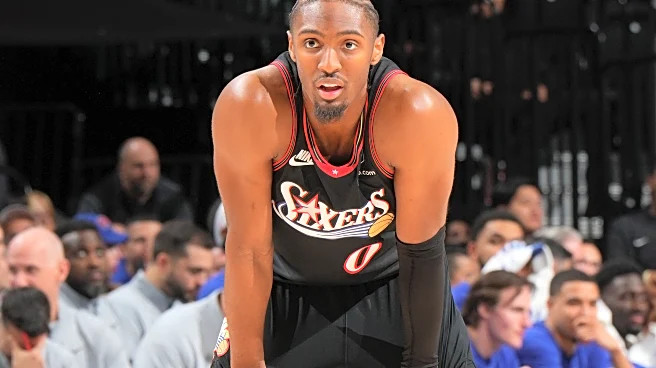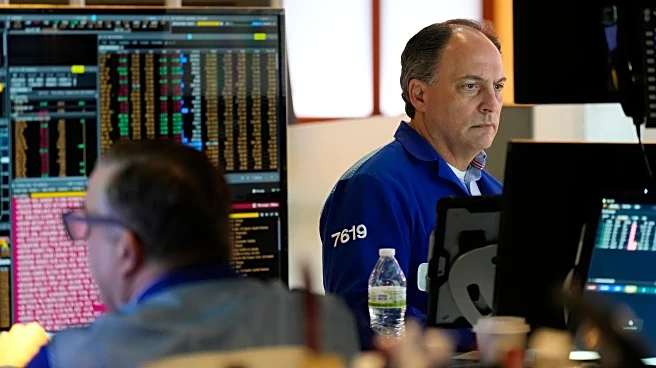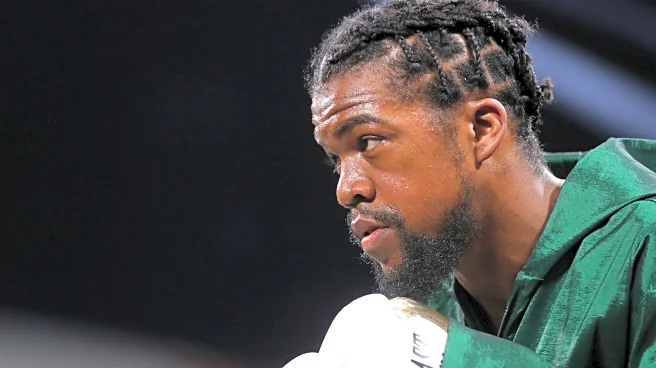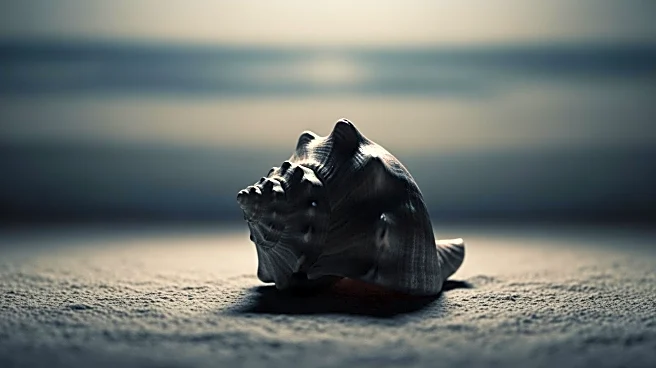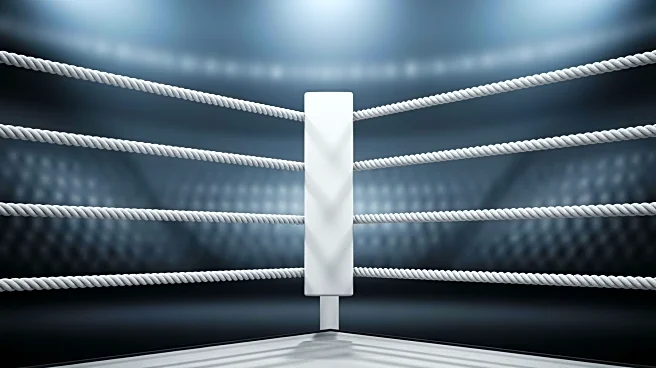
Indiana football head coach Curt Cignetti spoke to the media from the podium at Big Ten Media Days on Tuesday in Las Vegas, Nevada.
Here’s everything he said:
CIGNETTI: Good to be here. Exciting time getting
ready to start camp. Always great to be on the roster. Especially when your first year was 1983 and you’re into your 40-some odd years of coaching.
I would like to thank Tony Petitti for his leadership, Pam Whitten, Scott Dolson for their commitment to the Indiana football program. Year one is in the books. 126 years of Indiana football. Best season in Indiana history. No. 1 out of 126.
I think staff continuity has been a big part of our success through the years, regardless of where we’ve been, and kudos to them. With the 10-0 start, the staff holds the distinction of being the only staff in NCAA history to start the season 10-0 at two different schools and did it in successive seasons back-to-back.
I get questions, how are you going to sustain it? We’re not looking to sustain it. We’re looking to improve it. And the way you do that is by having the right people on the bus, upstairs in the coaches’ offices, downstairs in the locker room; having a blueprint plan and process; high standards of expectations, never lowering your standards; day-to-day plan, highly structured and organized; organizational discipline to improve in critical areas, which usually you have to do with player development, scheme development, program development, and create those intangibles entering the season. Consistency day in, day out. Consistency is huge so that we can play fast, physical, relentless, smart, disciplined, poised, not affected by success, not affected by failure, and never ever satisfied until the game is over.
This year’s team has a lot of nice pieces. I would use that term, “pieces.” Now we’ve got to mold this group into a team in fall camp.
I like a lot of parts on this team. Now we’ve got to get them all thinking alike, buying into the team vision, which is critical to success.
You can’t ever have any selfishness on your team, ever, regardless of who it is. Personal goals are secondary to team goals. When a team is successful, everyone benefits. So we’ve got a blueprint. We’ve got a plan. We try to improve it, our methods, but for the most part, continuity in staff, everyone thinking alike. Understanding what needs done and how we do it has been the key to the drill.
Excited for this season. Got a good Big Ten schedule, and it will all be done between the white lines. Talking season will end here soon, and then let’s play the games and see where it stands at the end of the year.
Let me open it up for questions. Go ahead
Q: What attracted you to Fernando Mendoza? And then also, the success of last year, how has that changed your program for the better? What has it done?
CIGNETTI: Fernando Mendoza, we had his younger brother, Alberto, in the program. He actually signed for us and was committed to us at JMU. When I went to Indiana, he came to Indiana. I’ve been aware of him. Watched a lot of his Cal tape once he decided to enter the portal. Saw a quarterback that had played a lot of football, a lot of good football. Has size. Has mobility, quick release, good arm. Can extend plays. Smart guy. He has areas he has to improve, but I really liked his last five days of spring ball. I have a lot of confidence in him. Excited to see how he develops.
Last year’s success, you know, has helped us in so many different ways. It’s helped the university fundraising at all levels, academic and athletic. Indiana has the second largest alumni base in America to Texas. So there was a lot of Hoosier pride out there.
Obviously it opened a lot of doors in the recruiting process because the first year we were selling promises, things we had accomplished in the past. Now we put it on the field. So we had better-looking athletes walking through the doors.
Okay, now that’s all done. Last year is done. All the Coach Cignetti pictures in the buildings on game days, get them off the walls, all that stuff. Everything is earned, not given now. Okay? Nothing good in life comes easy. What’s cheap won’t last. What lasts isn’t cheap. You got to pay the price every single day, and do it consistently.
When you are good, then you got to have that burning desire to be great because 98% of this game is between your ears. Next question.
Q: I spoke with Mikail earlier, he talked about the standard you just spoke of and last year getting everyone to buy into the — into what you brought over from James Madison. This year how much do you rely on those returners, the leaders that have followed you, to sort of help teach that philosophy and teach that standard and sort of become coaches under the helmet?
CIGNETTI: You know, it’s a top-down approach. Everything starts with me, trickles down to the assistants. They’re in charge of their room or their area. You can never have enough good leaders on your football team down in the locker room.
There is a small contingent of JMU guys still on this team that’s played really good football for a long time, that has the right stuff, and leads in a positive way. Those guys are invaluable.
But we have other guys on our team that are good leaders. Coogan coming in from Notre Dame. Smith, Carter Smith, our left tackle. I mean, I could name 10 or 12 guys that have potential to be really good leaders on our football team.
You win with people because the season is not a sprint. It’s a marathon. You got to be able to handle success. You’ve got to be able to handle failure. You’ve got to do the right things off the field. You have to stay away from the land mines. You have to pick other guys up when they’re down, but you have to have consistency and performance game in, game out, week in, week out.
Especially when you’re successful, right? You can’t have the warm fuzzies, become complacent, begin to hate the things that got you to where you are. That stuff is not hard. Those are things that aren’t talked about very much, but to go the distance, those are the things that you’ve got to thrive and be good at.
Q: You guys recently announced that you canceled a future home-and-home series with Virginia. Can you talk about what went into that decision and why you think that’s in the best interest for your program and the fans?
CIGNETTI: That was a scheduling philosophy that began before I was hired, but I did sign off on it upon being hired before our first season, okay?
Look, here’s the bottom line, okay, we picked up an extra home game, and we play nine conference games. The two best conferences in college football, any football guy that’s objective will tell you is the Big Ten and the SEC, all right? 12 of the 16 SEC teams play three G5 or an FCS game. 12 of those teams play 36 games, 29 G5 games and seven FCS games, and one less conference game. All right?
So we figured we would just adopt SEC scheduling philosophy, you know. Some people don’t like it. I’m more focused in on those nine conference games. Not only do we want to play nine conference games, okay, and have the four-four championship — the playoff format, we want to have play-in games to decide who plays in those playoffs.
Championship weekend, let’s play three versus six and four versus five. You want to decide that on the field and make sure everybody’s strength of schedule is what it needs to be? Let’s make everybody play nine conference games, and on championship weekend three will play six, four will play five. There’s still room for another at-large in that format.
Why shouldn’t the Big Ten have four AQs because Ohio State actually finished fourth in the conference at the end of the season. Indiana and Penn State were tied for second. They won the tie-breaker. Ohio State won the national championship. You want to put the best teams in the playoffs, give the best leagues the AQ, but make them earn it with play-in games.
We wouldn’t be opposed to Big Ten-SEC regular season games every year. We need to standardize the schedule across the board if we want to have objective criteria for who should be in the playoffs and who shouldn’t, and we need to take the decision-making off the committee to some degree.
Q: Your first season culminated in an 11-1 season and a CFP berth. A meteoric rise in just 14 months. You already talked based on the standard a little bit. How are you ensuring your Cinderella culture now becomes the standard and not just the exception?
CIGNETTI: Hey, look, the theme of this year really is humble and hungry versus noise and clutter. Humble and hungry. If are you humble and you are hungry and you got that fire burning inside your belly and you’re committed to high standards, okay, and the leadership has good plan, structured, organized plan that’s going to lead to your development and team development, then you’re going to reach your full potential. Okay?
If you are resting on your laurels and you got the warm fuzzies based on what social media is telling you or what you read on social media and you think it’s just going to happen again because it happened before, you ain’t going to be a very happy camper when the season is over. My job is to make sure that doesn’t happen.
Now, I’m really good at a couple of things. I know I got to improve in a lot of ways, but I’m really good at keeping the main thing the main thing and being a watchdog for complacency and stomping it out. When we go to camp and we get ready for that first game, these guys will be thinking like we need them to think.
Q: You talked about it is pretty hard to top the greatest season in school history. Last year you talked about how you were excited about NIL. You just talked about how you have the second largest alumni base. What are some key non-negotiables that you have for NIL budgeting or even just ethics going forward to kind of prevent some of the things you just talked about, like complacency, especially whether it be high school or kids coming out the portal?
CIGNETTI: I think we’re talking about two different issues there. On one side we’re talking about player development and becoming the best you can be, and on the other side we’re talking about institutional resources that lead to retention and recruiting.
Our goal is to be the best. This is a great league. There’s some schools in this conference that have great tradition for a long, long time and have some incredible resources. I personally — my personal goal is we’re in the top one-third of the conference when it comes to resources in all areas that are critical to program success.
Now, the landscape is still changing, changing as we speak today. You’ve got to be light on your feet and nimble, and at some point hopefully down the road this thing will settle down and we’ll have clear rules and regulations on how we operate.
More from crimsonquarry.com:
- Three-Star ATH/QB Reese Taylor commits to Indiana
- Report: Indiana, Indiana State to open 2017-18 college basketball season in Bloomington
- Indiana adds former Ole Miss commit and top corner in Tennessee, Jaylin Williams
- Camion Patrick and TJ Simmons injured, done at Indiana
- Big Ten announces Indiana’s 2017-2018 opponents
